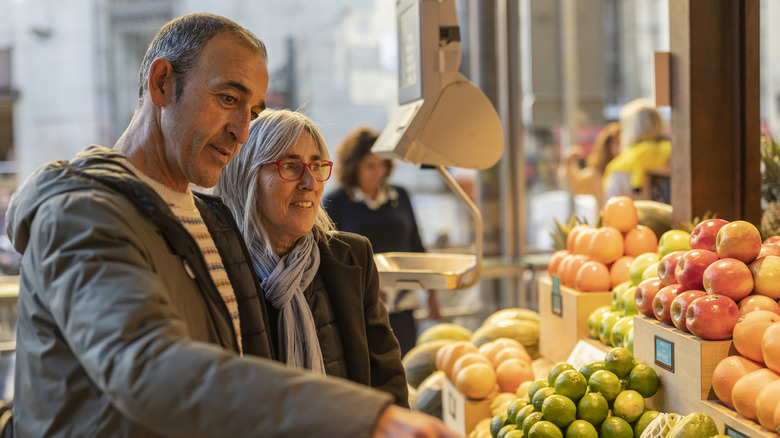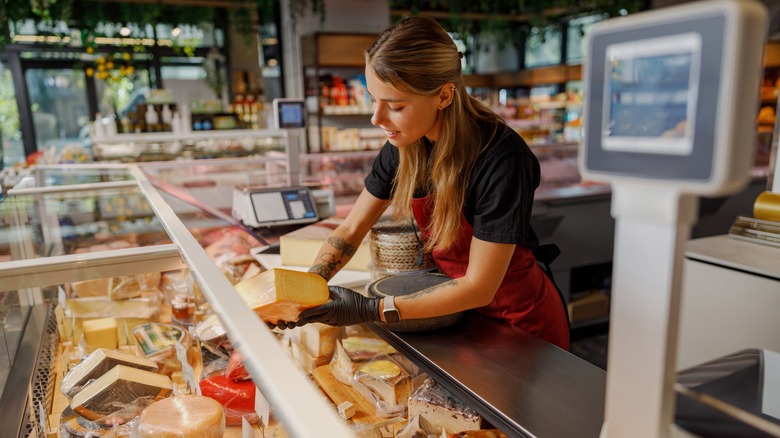Why Tourists May Need To Buy Groceries More Often During An Extended Stay In Europe
Back in the U.S., a single Costco haul can keep you fed for weeks. In much of Europe, that idea is downright foreign. Many people make daily trips to the grocery store, buying what they need for that night's meal. But it's not just a matter of preference; it's often a necessity.
The cavernous fridges (or freezers) that are often found in America just don't fit in many European homes or apartments. Instead, European fridges tend to be compact — sometimes not much bigger than a model designed for beverages in the U.S., making frequent grocery trips a practical part of everyday life. And if you're on an extended trip to Europe, you'll have to pick up the habit, too.
There's another reason for the frequent shopping trips, though. European food often has a shorter shelf life, meaning you have to buy fresh and eat fast! That's because many items contain far fewer additives and preservatives in Europe than in the U.S. It also means that to many travelers, food tastes better in Europe. But is daily shopping a chore? It certainly doesn't have to be.
Grocery shopping as an experience
A visit to the grocery store or market while abroad can be a pleasure. It's a window into what the locals eat day-to-day, a chance to discover unique, regional products, and a money-saving exercise when compared to eating out. You probably won't have to trek a long way to a grocery store, particularly if you're in a large city, as most European neighborhoods have at least a modest-sized supermarket. Many will also have markets selling fresh produce, breads, cheeses, and other artisanal products. Check out our article to see the best food markets in Europe, according to travelers.
If you're ready to shop like a local, here are a couple of pointers. First, check the opening hours, as this can be the biggest difference between American and European supermarkets. Small stores might close in the middle of the day — particularly in southern Europe — and in many countries, stores close earlier than they would in the U.S. and might be closed on Sundays.
Next, see whether you need to weigh your produce before you get to the checkout, and bring your own bags, as plastic ones aren't free (or environmentally friendly!). Daily grocery shopping might start as a necessity, but you may find yourself looking forward to it. In Europe, picking up that night's dinner can be as much a part of the adventure as visiting a museum or strolling through a historic square.

